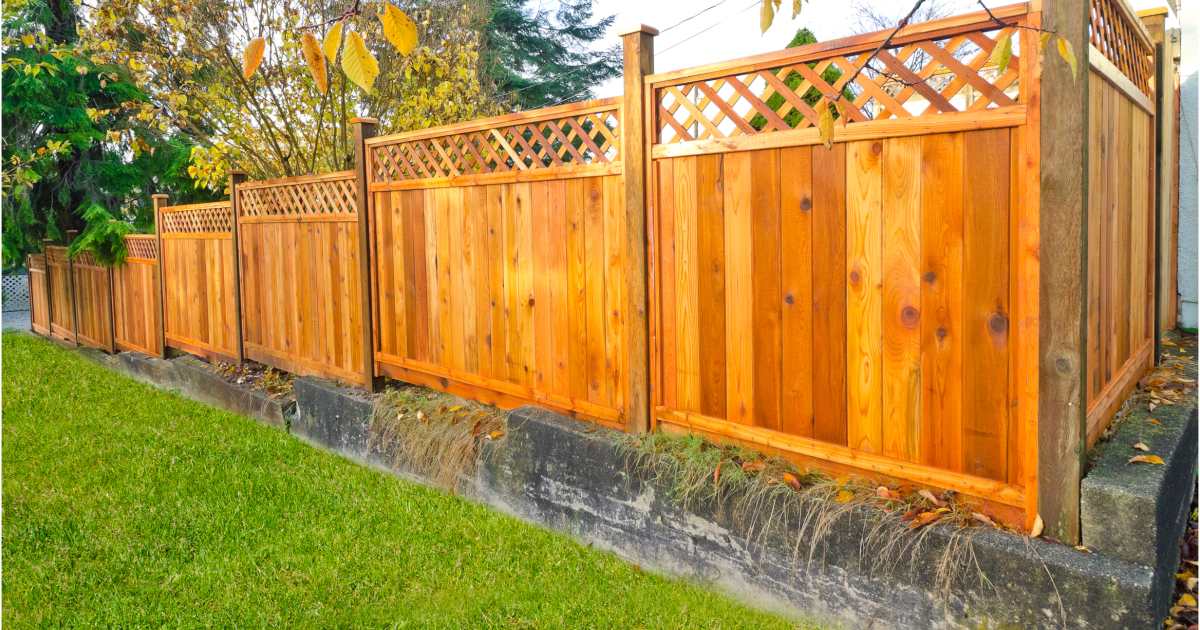All Categories
Featured

When preparing a new fence for your residential or commercial property, it's easy to focus on the standard prices-- products, installation, and labor. Below's an overview to some of the most common hidden prices to think about when budgeting for your fencing task.
- Permit Fees and Lawful Requirements. Before you start digging, it is necessary to inspect if your area requires a permit to install a fencing. Numerous municipalities have zoning legislations that govern fencing elevation, material, and placement, especially if you're developing near a residential or commercial property line or in a community with a Property owners' Association (HOA) These guidelines make sure the fence meets regional standards, but they likewise feature connected costs.
Expense array: $50 to $500, depending upon your location and the complexity of your project. 2. Fence Removal and Disposal. If you're changing an existing fence, removal and disposal of the old structure is an additional cost that can easily be forgotten. Fencing removal typically entails dismantling the old fencing, hauling away the materials, and getting rid of them appropriately. Disposal fees can differ, specifically if the old materials require unique handling, such as treated wood or metal.

Price array: $2 to $10 per straight foot for elimination and disposal, relying on the products. 3. Land Prep Work and Excavation. If the land where your fence is being set up is unequal, rocky, or covered in vegetation, it might require to be cleared or leveled. Grading or excavation prices can include to your overall job expenditures, especially if you're setting up posts in hard-to-dig dirt.
Cost array: $300 to $2,000, depending upon the site's problem. 4. Utility Line Identification and Modifications. Before excavating, it's essential to make sure that no underground utilities, like water, gas, or electrical lines, will be disturbed throughout the setup. The majority of specialists will certainly speak to energy companies to mark these lines, yet there might be extra prices if changes are required to prevent harmful existing framework.
Cost range: $100 to $500, depending upon whether changes are required. 5. Custom Qualities and Upgrades. While your fundamental fencing may contain conventional materials, you might intend to include custom functions like gates, attractive panels, or incorporated lighting. Automatic entrances or protection systems are especially pricey and require professional installment. Adding these additionals boosts the overall price of your fencing, so make certain to factor them right into your spending plan.

Price range: $100 to $1,500+ for functions or gates, depending upon size and complexity. 6. Shipment and Transport Costs. Depending on where your products are sourced, you may be charged a separate shipment cost for transporting the fence materials to your residential property. This is particularly common with big or hefty orders, such as wood panels or metal fencing. Delivery expenses can likewise differ based upon the range in between the supplier and your location.
Cost variety: $50 to $300 for distribution, depending on distance and the quantity of materials. 7. Maintenance Costs In Time. Numerous kinds of fencings, particularly timber fencings, require recurring upkeep to stay in great problem. Normal tasks like staining, securing, and cleansing will certainly assist lengthen the life of your fencing. Some products, such as plastic or steel, may be a lot more low-maintenance but can still incur expenses for repair work or substitutes if harmed.
Annual price array: $50 to $300 for upkeep, relying on product and environment. 8. Weather condition Delays. Mother earth does not always accept your timeline. If your setup is delayed by negative weather condition, such as rain or severe heat, you may encounter extra labor prices if employees require to return to complete the job at a later time. Delays can additionally extend the task timeline, pressing back when the fence awaits usage.
Expense array: Variable, depending on for how long the hold-up lasts. 9. Building Line Disputes. Mounting a fence close to your home line can occasionally lead to disagreements with next-door neighbors. It may be required to employ an expert land surveyor to confirm the building line prior to installment if your boundary is vague. This additional step ensures you will not mistakenly intrude on your next-door neighbor's land, but it comes with included costs.
Cost array: $400 to $1,000 for a property study, relying on your area. 10. Soil and Ground Conditions. Particular dirt types can present difficulties during setup. If your residential or commercial property has rocky, compressed, or clay-based dirt, digging holes for messages can be a lot a lot more tough, requiring specific devices or more time to finish. Harder ground problems could also require the usage of other or concrete reinforcing products for included security.
Expense array: $100 to $500 for equipment or added labor. Conclusion. Permits, website preparation, old fencing elimination, utility changes, and custom functions can all include up. By accounting for these hidden costs, you can make sure that your fence task remains within budget plan and is completed without unforeseen financial surprises.
Latest Posts
Uncover the Best Auto Repair Deals in Montclare, Chicago
Published May 27, 25
1 min read
How to Know When Your Car Needs Skilled Auto Repair at Montclare Auto Repair
Published May 27, 25
1 min read
The Benefits of Regular Car Maintenance at Montclare Auto Repair Reduces Costs
Published May 22, 25
1 min read
More
Latest Posts
Uncover the Best Auto Repair Deals in Montclare, Chicago
Published May 27, 25
1 min read
How to Know When Your Car Needs Skilled Auto Repair at Montclare Auto Repair
Published May 27, 25
1 min read
The Benefits of Regular Car Maintenance at Montclare Auto Repair Reduces Costs
Published May 22, 25
1 min read